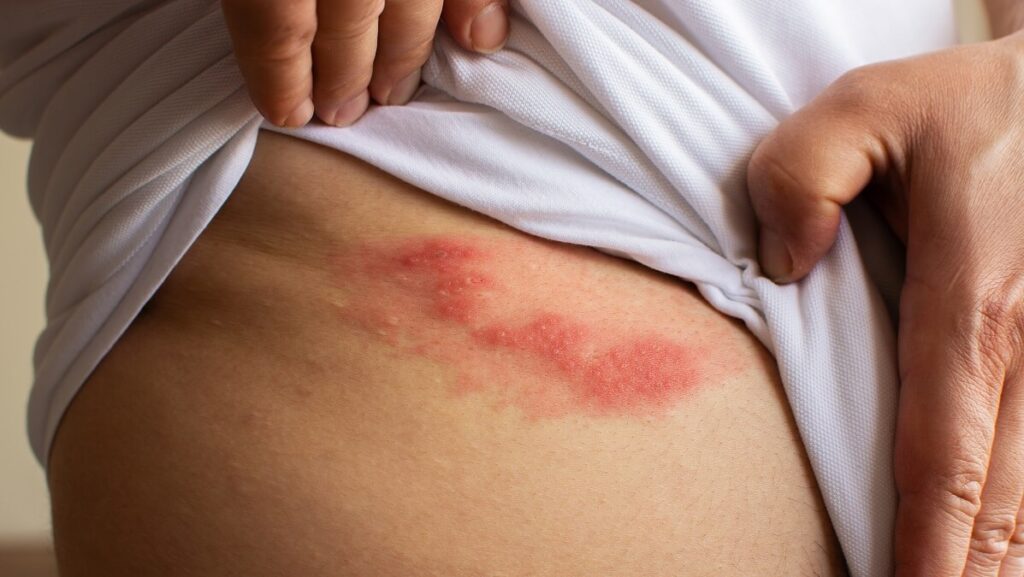It’s a nasty, painful condition that will affect around one in three Australians in their lifetime. So, how much do you know about shingles?
Shingles typically presents as an itchy rash, with painful blisters across the chest, abdomen or face. The pain is often described as burning, shooting or stabbing.
Shingles is caused by the varicella zoster virus, the same virus that causes chickenpox. It can be a debilitating condition, with some sufferers experiencing symptoms for months or even years.
There are around 120,000 new cases of shingles each year in Australia, with more than 2000 of those requiring hospitalisation and around 20 ending in death.
Read: Smoking, bedding, heating the strongest links to asthma
It’s estimated one in three people will experience shingles in their lifetime, but alarmingly many people are unaware that their shingles risk grows exponentially after the age of 50.
In a new survey commissioned by GlaxoSmithKline (GSK) Australia, a sample group of 300 Australians aged 50 to 79 were quizzed on their knowledge of developing shingles.
Just eight per cent of respondents felt they were at risk of contracting shingles in the next 12 months, 15 per cent said they were at risk within five years and 19 per cent within the next 10 years.
The survey also revealed a gap between what people know about shingles and their actions.
Read: A daily multivitamin may slow cognitive decline
While 75 per cent of survey respondents said they understood the seriousness of shingles, just 16 per cent of respondents in their 50s, and 22 per cent in their 60s, had ever discussed shingles with their GP.
Dr Sarah Chu says Australians aged 50 and over need to start thinking about their shingles risk.
“Up to one in three Australians risk developing shingles in their lifetime and up to 99.5 per cent of adults 50 years and over carry the virus that can cause shingles,” she says.
“The virus that causes shingles comes from within the body, so public health measures like social distancing or mask wearing don’t impact rates of shingles.
Read: Nine key signs of leukaemia
“As we get older, our immune system starts to decline and this can lead to the reactivation of the varicella zoster virus, causing shingles. This is the same virus that also causes chickenpox.”
Fortunately, a vaccine for shingles has been available since 2006. The shingles vaccine in Australia is known as Zostavax and is recommended for people aged 60 and over.
People aged 50 and over can get the vaccine on request if they live with an immunocompromised person or in other high-risk settings.
The health department advises that the Zostavax vaccine is free under the National Immunisation Program for immunocompetent adults aged 70. Catch-up vaccination is also available for adults aged 71 to 79 years until 31 October 2023.
Have you ever had shingles? Do you think you should speak to your GP about the possibility of getting shingles? Let us know in the comments section below.

